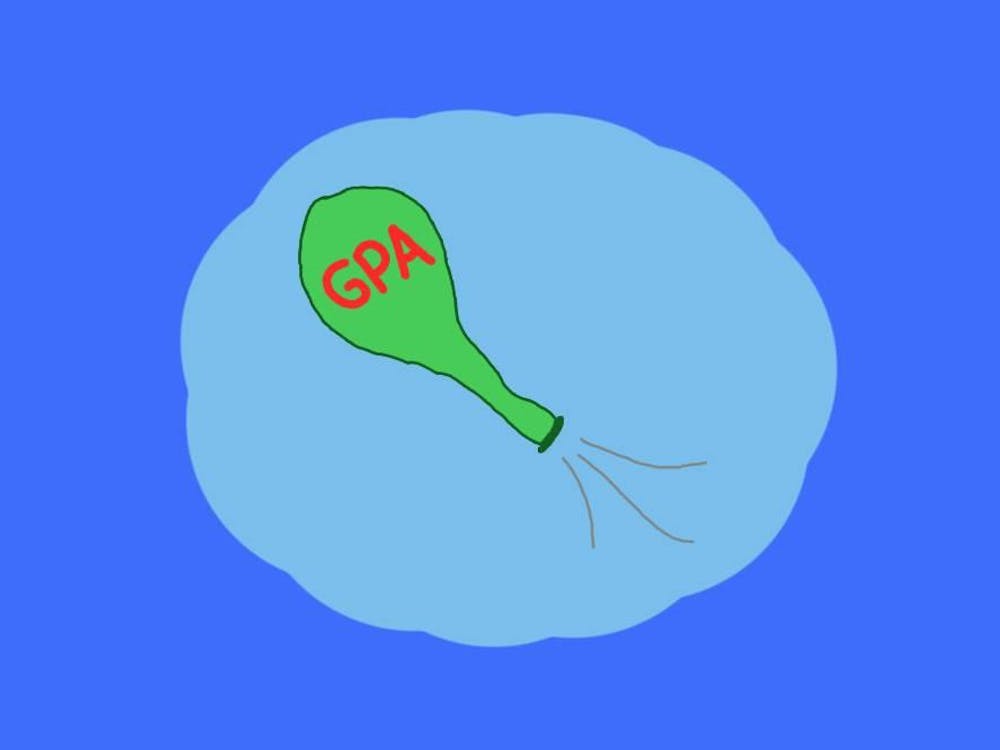IF I WANT to skip class, it is my choice. If I decide not to study for an exam, that is my choice. If I want to rush in the fall, that should be my choice, too.
One of the many controversies at the University during recent weeks has dealt with the issue of rush. The University administration feels that first-year students need a semester to get used to life at a university, and argues that rush will hinder their academic performance. Fraternities need brothers to pay dues so they can maintain their houses and uphold their traditions of serving the community. The University prides itself on having mature and intelligent students, and it stands to reason that students should be allowed to choose when they want to rush.
This is the second year without fall rush, and the Inter-Fraternity Council already is having problems with waiting until second semester to start first-year rush. By not being able to hold rush in the fall, fraternities are lacking in usual membership numbers. The lack of brothers means a lack of dues. They need money to maintain their houses, perform service activities for the community, and host social functions. This fall, they are faced with a loss of funds that prevents them from continuing their long tradition of community functions. Preventing students from rushing until the spring keeps the community from receiving the full benefit of strong fraternities.
In a personal interview, IFC President Wes Kaupinen said, "On average, fraternities are losing an eighth of the money they made when fall rush still existed." He continued, "Most dues go to maintaining the houses, paying insurance, and national fraternity dues... thus leaving a small amount for community and social functions." Some fraternities have been forced to raise spring dues to compensate for the loss in the fall. The increase, according to Kaupinen, leads to a decrease in the number of rushees willing to pledge. Overall, "a loss of money and potential decrease in pledges contributes to an overall weakening of the fraternity system," Kaupinen said.
Fall rush should become an option again for first-year men mature enough to make that choice. The transition from high school to university life is a tough one, and some students may need a semester to adapt to their new schedules. In addition, the administration felt that moving rush to the spring semester might improve the "intellectual community" that the University so prides itself on.
In a Cavalier Daily viewpoint ("Spring rush serves community interests," Oct. 21), Jahan Ramazani, former Faculty Senate Chairman and a strong supporter of moving rush to spring, stated, "I knew what it was like to have bleary-eyed students in class, falling asleep at their desks, apologizing repeatedly for late assignments, sometimes slipping into academic probation or suspension."
Some students do make these bad decisions, but it is their choice. Letting students make their own choices is a strong aspect of the University's intellectual community. An intelligent person is responsible for his own actions, knows this, and still can make his own informed decision. He realizes this and is mature enough to make intelligent decisions with potential outcomes in mind.
The return of fall rush will help fraternities get much-needed funds in the fall. They'll have more brothers to serve in the fall, while fostering the intellectual community by allowing men to choose when to rush. Letting students make their own decisions goes together with the intellectual community at the University. An intelligent student knows how to govern himself, what the consequences of his actions are, and what is best suitable for his needs. Offering the choice of rush in the fall upholds the tradition of an intellectual community at our fine University.
(Brandon Almond is a first-year College student.)




